PRODUCT PARAMETERS
Description
Introduction of Mechanical Transmission Gearbox
Mechanical Transmission Gearbox, or gearbox, is an important part of a mechanical transmission system, mainly used to change the speed and torque between the engine output shaft and the drive wheels. It realizes the selection of different ratios through the meshing of a series of gears to adjust the speed and strength of the power transmission.Mechanical Transmission Gearbox is not only used in automobiles but is also very common in industrial equipment, agricultural machinery, construction machinery, and other applications that require the adjustment of speed and torque.
Features and benefits of Mechanical Transmission Gearbox
Multi-stage gearing: Multiple gear options are available, allowing speed and torque to be optimized based on load conditions.
Increased Efficiency: Proper gear ratios maximize engine efficiency and reduce fuel consumption.
Enhanced Performance: Provides optimal power output under different operating conditions, improving the overall performance of the equipment.
Protect the engine: Reduce the burden on the engine by adjusting the gear ratio to avoid overloading.
Smooth operation: Using synchronizers and other technologies to ensure smooth gear shifting and reduce shock and noise.
Durability: High-quality materials and precision manufacturing processes ensure a long service life.
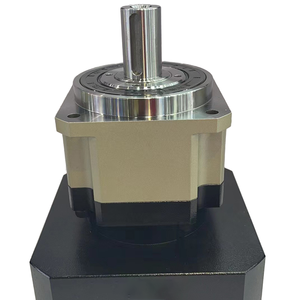
(Mechanical Transmission Gearbox)
Specification of Mechanical Transmission Gearbox
Mechanical transmission gearboxes transfer power. They change speed and torque in between input and result shafts. Transmissions are essential for equipment. They make equipments function effectively. Recognizing transmission requirements is important. It makes certain appropriate devices selection and procedure.
Gear ratio is a main requirements. It shows the connection between input and output shaft speeds. A greater ratio implies a lot more torque output. Reduced ratios deliver higher output speeds. Gear proportions are fixed or variable. This relies on the transmission kind.
Torque ability issues substantially. It defines the optimum rotational force the gearbox can take care of. Surpassing this restriction damages the transmission. Constantly check the torque score. Suit it to your application’s demands. Input and outcome shaft speeds are essential too. They must line up with your motor and driven equipment.
Real estate product affects resilience and weight. Common choices include cast iron, light weight aluminum, and steel. Cast iron supplies high toughness. Aluminum is lighter. Steel offers an excellent equilibrium. Equipment material is similarly vital. Solidified steel equipments are standard. They resist wear and take care of heavy lots. Some applications use specialized alloys.
Effectiveness shows power loss throughout transmission. Greater effectiveness transmissions save power. They generate less warmth. Lubrication type is specified. Oil or oil prevails. Correct lubrication prolongs gearbox life. It minimizes friction and wear. Sealing avoids lube leakages. It keeps contaminants out. Excellent seals are critical in severe environments.
Mounting configuration must fit your maker. Common choices consist of foot-mounted, flange-mounted, or shaft-mounted styles. Take into consideration the physical area readily available. Input and output shaft dimensions and kinds are essential. They should link appropriately to other parts. Keyways or splines are common shaft features.
Running temperature range is defined. The transmission must operate reliably within these limitations. Ambient temperature influences performance. Maintenance needs vary. Some transmissions require regular lubrication checks. Others are made for very little upkeep. Noise degrees can be an element. Quieter operation is usually preferred. Equipment layout influences noise.
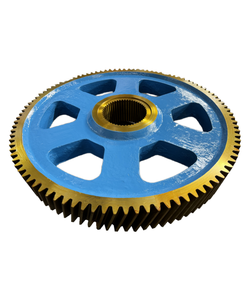
(Mechanical Transmission Gearbox)
Applications of Mechanical Transmission Gearbox
Mechanical transmission gearboxes move power from engines to where it’s needed. They change rate and pressure. This makes makers work right. These transmissions are important parts everywhere.
In your cars and truck, the transmission is vital. It takes the engine’s spin. It adjusts this spin for the wheels. Lower gears give even more pushing power to start relocating. Higher gears let the car go quicker while using much less fuel. Manual transmissions require the chauffeur to move. Automatic gearboxes handle shifting themselves. Trucks and buses rely heavily on solid transmissions also. They handle heavy lots and hard roadways.
Factories use gearboxes constantly. Conveyor belts relocate materials. Gearboxes manage their speed. Production line robots require exact motion. Transmissions provide this control. Large mixers and crushers in handling plants require massive force. Gearboxes provide this power safely. Packaging makers run quickly and smooth. Transmissions make this take place accurately. Manufacturing would stop without them.
Wind generators capture wind power. The blades transform gradually. Generators need to spin fast. A large gearbox enhances the blade speed significantly. This speed boost is critical for making power. The gearbox deals with huge anxieties from wind gusts. It has to be exceptionally difficult and last for many years.
Ranch devices relies on transmissions. Tractors draw plows and planters. Transmissions take care of the power transfer to these tools. Combines harvest plants. Their cutting devices and grain elevators are driven by transmissions. Watering pumps move water long distances. Transmissions maintain these pumps running successfully.
Ships and watercrafts make use of marine gearboxes. They link the engine to the propeller shaft. The gearbox adjusts the engine’s power for the propeller. This controls the vessel’s speed and direction. Tugboats push huge ships. Their gearboxes give tremendous pulling power. Reputable transmissions are critical for safety mixed-up.
Company Introduction
Established in 2009, Gearbox Solutions Machinery Co.,ltd. focus on metal research and mining machinery spare parts. 2 factories over an area of 13,300 square meters, based on 100+ sets of equipment, our production capacity reaches 12000 Tons/Year. has passed ISO 9001 quality managment system certification in 2008.
Our mainly products are dragline excavator spare parts,rotary kiln spare parts, large modulus gear (gear shaft), gearbox ect. 40+ patents with over 45 years experience to help focus on improve the service life of spare parts. We belive that more than 80% reason of mechanical parts’ working life depends on hot processing (steel making/forging/casting/welding/heat treatment). Eight material engineers will control the quality from the original resource.
If you are interested, please feel free to contact us.
Payment
L/C, T/T, Western Union, Paypal, Credit Card etc.
Shipment
By sea, by air, by express, as customers request.
5 FAQs of Mechanical Transmission Gearbox
Here are 5 FAQs about Mechanical Transmission Gearboxes:
What is a mechanical transmission gearbox?
It’s a metal box holding gears. It sits between your engine and wheels. This box changes the engine’s power output. It lets the vehicle move at different speeds. It also handles different loads effectively.
How does a gearbox work?
Gears inside mesh together. Different gear pairs have different sizes. Shifting selects which gear pair connects. Smaller gears driving larger ones give more pulling force. This is good for starting or climbing. Larger gears driving smaller ones give higher speed. This is good for cruising. The driver controls the shifts manually.
Why pick a mechanical gearbox over automatic types?
Mechanical gearboxes are simpler inside. This usually makes them cheaper to buy. They are often tougher and last longer. They give the driver direct control over gear selection. Many drivers like this feeling. They can also be more fuel-efficient. Drivers choose the best gear for the situation.
How long do these gearboxes usually last?
They are built for a long life. Proper use and regular care are key. Many last the entire life of the vehicle. This means hundreds of thousands of miles. Rough driving shortens their life. Neglecting oil changes harms them badly.
What maintenance does a mechanical gearbox need?
Regular oil changes are absolutely essential. Check the gear oil level often. Use the exact oil type the maker specifies. Replace worn clutch parts when needed. The clutch connects the engine to the gearbox. Listen for strange grinding or whining noises. Get unusual noises checked immediately.
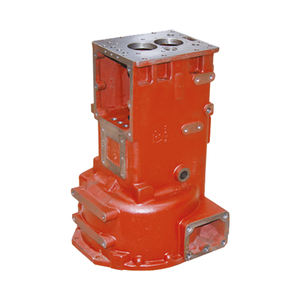
(Mechanical Transmission Gearbox)
REQUEST A QUOTE
RELATED PRODUCTS
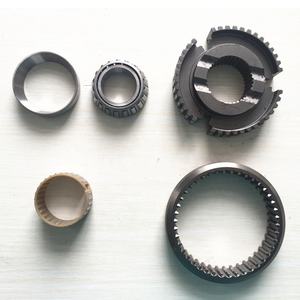
Manual Gearbox D-MAX 4JB1 4WD 4X4 Gearbox And Clutch Housing For Isuzu Pickup NKR
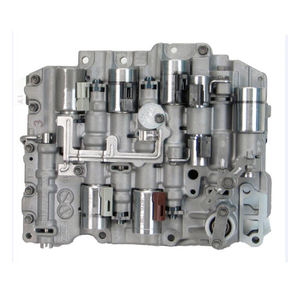
Modern Novel Design Factory Ring Gear Gearbox
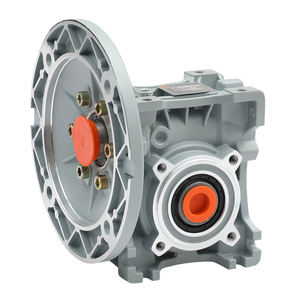
R series 1400 rpm motor coaxial gearbox speed reducer with motor ac gear brake electric motor 5hp 10hp 20hp

Factory Direct GM12 Series Gearbox All Metal 12MM*10MM GM12 Mini Gearbox for N30 15BY 10BY DC Motor
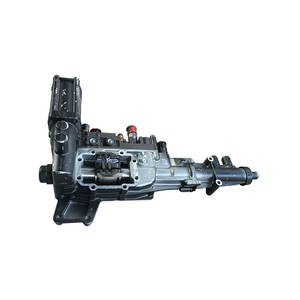
Professional Manufacture Cheap Speed Reducer Variator Gearbox

